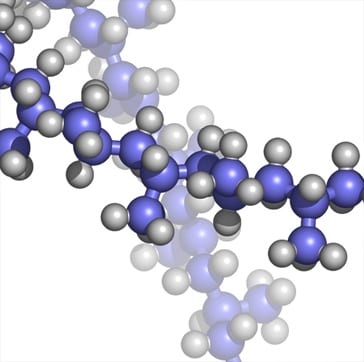What is plastic?
 Plastics are polymers, that is, they’re large molecules made up of repeating smaller molecules known as monomers. Along with synthetic plastics, polymers exist in nature as well: the cellulose that makes up plant cell walls and even the DNA in your cells are types of polymers. Unlike synthetic plastics, microbes and processes exist that can biodegrade these natural polymers.
Plastics are polymers, that is, they’re large molecules made up of repeating smaller molecules known as monomers. Along with synthetic plastics, polymers exist in nature as well: the cellulose that makes up plant cell walls and even the DNA in your cells are types of polymers. Unlike synthetic plastics, microbes and processes exist that can biodegrade these natural polymers.
Plastics are polymers that can be molded into various shapes and consistencies when exposed to high temperatures. Rubber made from rubber trees, as well as shellac made from the resin secreted by the female lac bug are naturally derived plastics.
The first fully synthetic plastic, Bakelite, was developed in 1907 by Belgian chemist Leo Baekeland. Made to replace shellac which depended on populations of highly exploited Southeast Asian lac bugs, Baekeland combined formaldehyde and phenol, a waste byproduct of coal industry. Thanks to its versatility Bakelite’s popularity exploded in the early 20th century and was used in everything from combs to radios to car parts. Today’s plastics are mostly synthesized from fossil fuels. The majority of plastic waste produced by the United States is in the form of containers and packaging.



